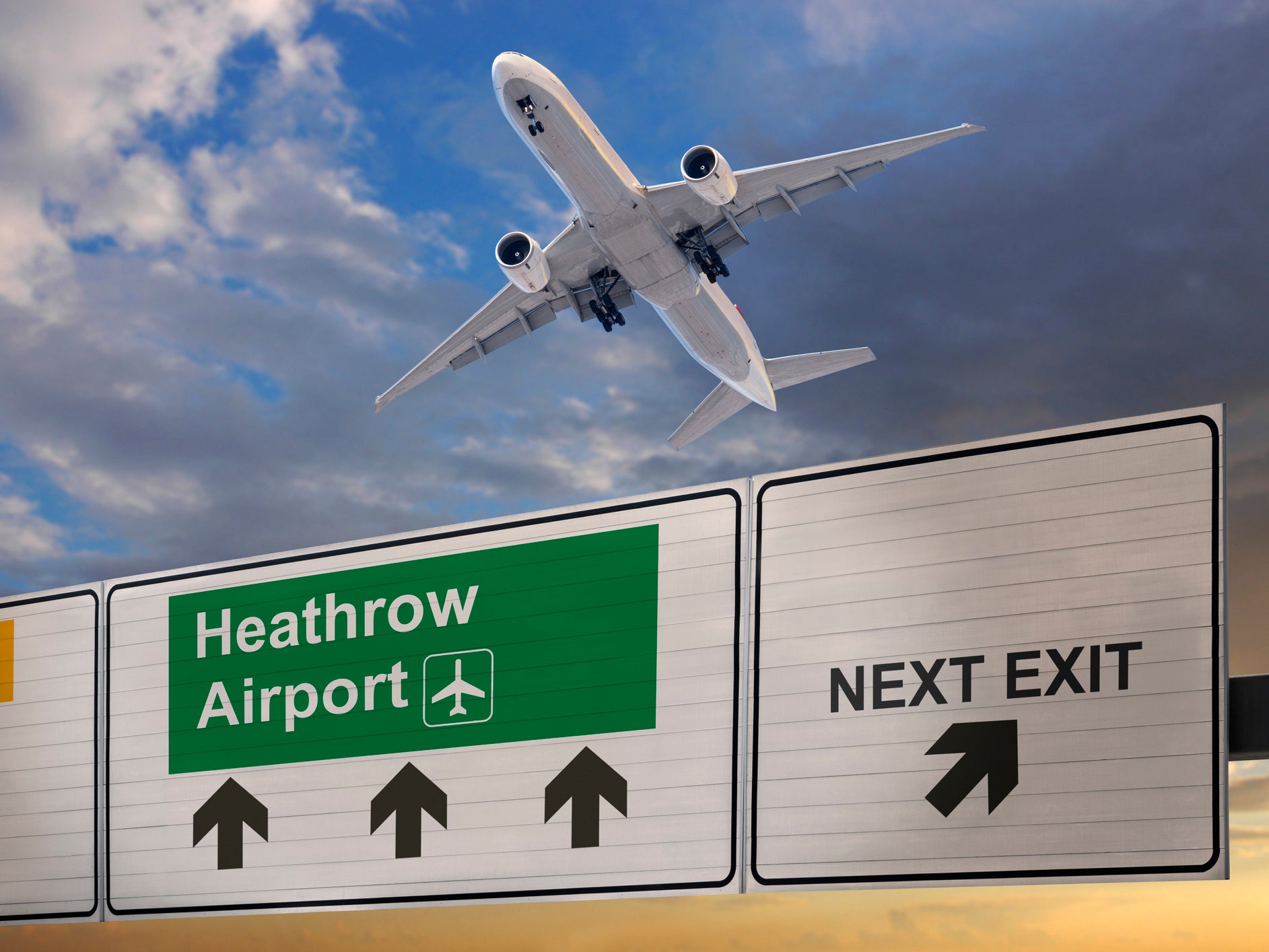This website uses cookies so that we can provide you with the best user experience possible. Cookie information is stored in your browser and performs functions such as recognising you when you return to our website and helping our team to understand which sections of the website you find most interesting and useful.

“Champagne corks heard popping at Schiphol and CDG,” texted one interested party minutes after the Court of Appeal ruled that the government’s expansions plans for Heathrow breached environmental rules.
The airports in Amsterdam and Paris will certainly be cheered by the continuing paralysis in the world capital of aviation: even though London handles far more passengers each year than any other city, its main airport has long been full.
As the verdict was announced, huge jets were as usual performing countless circles in the sky over the Home Counties, waiting their turn to land at Heathrow airport.
A day before the ruling, Heathrow’s chief executive, John Holland-Kaye, made an extraordinary appeal to Brexiteers – seeking their support for a third runway by invoking the prospect of “being overtaken by the French”.
“If we don’t expand we will be flying through Paris to get to global markets, relying on the future of the economy on the French – our rivals now, not our partners in the EU,” he told me.
Created with Sketch.
Created with Sketch.
1/6
Artist's impression of Heathrow Airport with the third runway (L)
Grimshaw Architects
2/6
The runway will pass over the M25
Grimshaw Architects
3/6
Heathrow aiport as it currently stands
4/6
Overlay shows the approximate size of the expansion plan for Heathrow Airport
5/6
Design for the new terminal to serve the third runway
PA
6/6
Artist's impression of Heathrow Airport with the third runway (L)
Grimshaw Architects
1/6
Artist's impression of Heathrow Airport with the third runway (L)
Grimshaw Architects
2/6
The runway will pass over the M25
Grimshaw Architects
3/6
Heathrow aiport as it currently stands
4/6
Overlay shows the approximate size of the expansion plan for Heathrow Airport
5/6
Design for the new terminal to serve the third runway
PA
6/6
Artist's impression of Heathrow Airport with the third runway (L)
Grimshaw Architects
“No prime minister could possibly allow this to happen. No Heathrow expansion, no global Britain.”
Yet the champagne may well be flowing at Downing Street. The Court has assisted Boris Johnson by kicking the third runway controversy deep into the long grass of Harmondsworth, one of the villages affected by the Heathrow plan.
In the tricky field of airport expansion, local politics has always trumped global strategy.
While any market analysis of Heathrow shows a vast amount of unsatisfied demand, successive prime ministers have deemed new runways too politically toxic an issue to take any meaningful action.
Ahead of the 2010 election, David Cameron famously said: “No ifs, no buts, no third runway.”
Once in power, he commissioned Sir Howard Davies to assess the best option for expansion – with strict instructions not to report until after the 2015 election.
“The third runway is so toxic as to be undeliverable,” Mr Johnson told me in 2014 – when, as Mayor of London, he was advocating a wholly new airport in the Thames Estuary. The concept of “Boris Island” was quickly demolished as unworkable.
The following year, when Mr Johnson was first a candidate for Uxbridge and South Ruislip in 2015, he vowed: “I will lie down with you in front of those bulldozers and stop the building, stop the construction of that third runway.”
But the future prime minister was conveniently in Afghanistan on the day parliament was voting on Heathrow’s expansion, something which MPs overwhelmingly endorsed at the time.
The Conservative manifesto for the 2019 election kept the third runway plan at a convenient distance: “It is for Heathrow to demonstrate that it can meet its air quality and noise obligations.”
Europe’s busiest airport (for now, at least) is certain to challenge the court decision. But the third runway project is losing momentum at the same rate as the Davies Commission report gathers dust.
Even before the court ruling, the proposed third runway opening date of 2026 had been pushed back almost to the end of the decade.
A Civil Aviation Authority (CAA) report described the 2026 target as an “aggressive schedule” and said that, were planning permission not granted, airport charges and passenger fares may rise because of the “sunk costs”.
A Heathrow spokesperson said: “The CAA has delayed the project timetable by at least 12 months. We now expect to complete the third runway between early 2028 and late 2029.”
A cocktail of Brexit and the coronavirus is likely to reduce the urgency for extra capacity. After the EU referendum, airlines have cut their rate of expansion in the UK, and the government’s uncompromising plans for leaving the European Union are likely to dampen growth further.
Demand for champagne may have spiked in Sussex after the Court decision, though, as Gatwick airport’s plan for a second runway appears to be back on the table.
Britain’s second busiest airport has been quietly biding its time since the Davies Commission unanimously recommended expansion at Heathrow. Gatwick still has land south of the airport reserved for a full-sized runway and new terminal if the government so chooses.
Yet the environmental concerns highlighted by the Court still need to be overcome. Instead, expect more make-do-and-mend: Gatwick has filed plans to bring its standby runway into partial use alongside what is currently the busiest runway in the world.
On the thorny subject of airport in southeast England, transport secretaries of both parties have long chorused: “Doing nothing is not an option.”
But once again, inertia appears to be the only choice.



 Africana55 Radio
Africana55 Radio 

